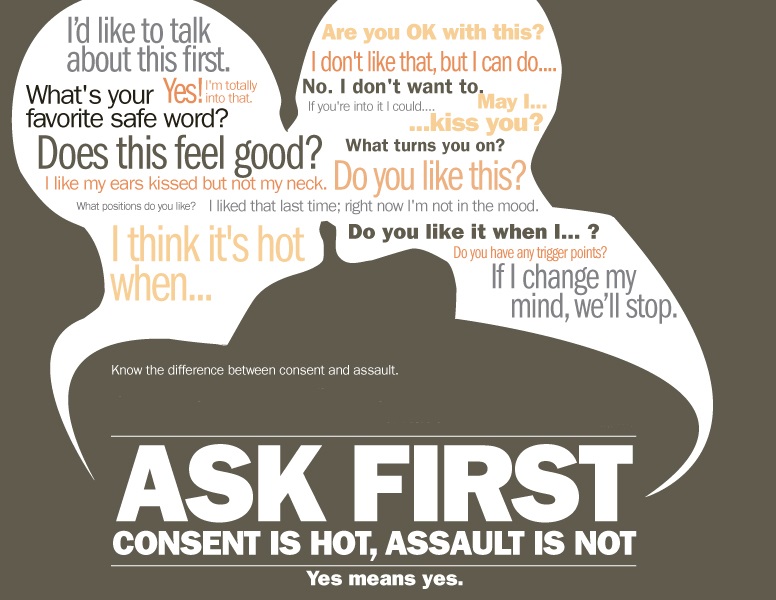Consent is Hot, Assault is Not: Always Ask First!
Last Updated: February 13, 2023
Although DanceSafe is mostly known for harm reduction related to recreational drug use, we are also an organization that believes in the importance of affirmative, informed consent. Affirmative and informed consent is a knowing, voluntary, and mutual decision among all participants to engage in sexual activity. Consent can be given by words and/or actions, as long as those words and/or actions create clear permission regarding willingness to engage in the sexual activity. Silence or lack of resistance does not affirm consent. The definition of consent does not vary based upon a participant’s sex, sexual orientation, gender identity, or gender expression.
Based on this definition, this means:
- Consent can be withdrawn at any time.
- When consent is withdrawn or can no longer be given, sexual activity must stop.
- Consent cannot be given when it is the result of coercion, intimidation or threat of harm.
- Consent cannot be given when a person is incapacitated, which occurs when an individual lacks the ability to knowingly choose to participate in sexual activity.
DanceSafe condemns behavior that puts others at risk of unwanted sexual contact or comments, and asks that members of the electronic music and nightlife communities do research on how to ask for consent (see our #WeLoveConsent resources!), and when to recognize if it’s given or not. Given the nature of the electronic music and nightlife culture, where emotions are enhanced by music, energy, and oftentimes drug use, many situations may involve individuals who aren’t capable of affirmative and informed consent.
Here are some examples of asking for consent:
- Is this ok?
- Do you like when I do this?
- Are you into this?
- Do you want me to touch you here?
- Would it be ok if I kissed you here?
Remember that consent should be given enthusiastically, which means if someone isn’t eager to give you a resounding yes, what they might actually mean is no. Some women in particular are taught to please others and put their own needs aside, so sometimes a small, shy “yes” really means “I’d prefer if we didn’t.” Also remember that our bodies and minds don’t always sync up, meaning that someone might be demonstrating signs of arousal (wet panties, erect penis) but really do not want sexual contact. This is why it is so important to listen to the person when they say no, no matter what they’re doing with their body!
Please educate yourselves and your peers about the importance of asking for and receiving affirmative, informed consent before engaging in any sexual or intimate activity, including dancing, touching, and kissing. If you think you or a friend have been sexually violated, please click here for helpful resources.
DanceSafe quotes and gives credit for the above information on affirmative consent to Caitlin V. Neal & Sloane Ferenchak
Photo credit: The Yes Means Yes campaign was created in 2011 by students, staff and faculty at The New School. The artist of all the graphic work is Neha Shah, Parsons graduate.


